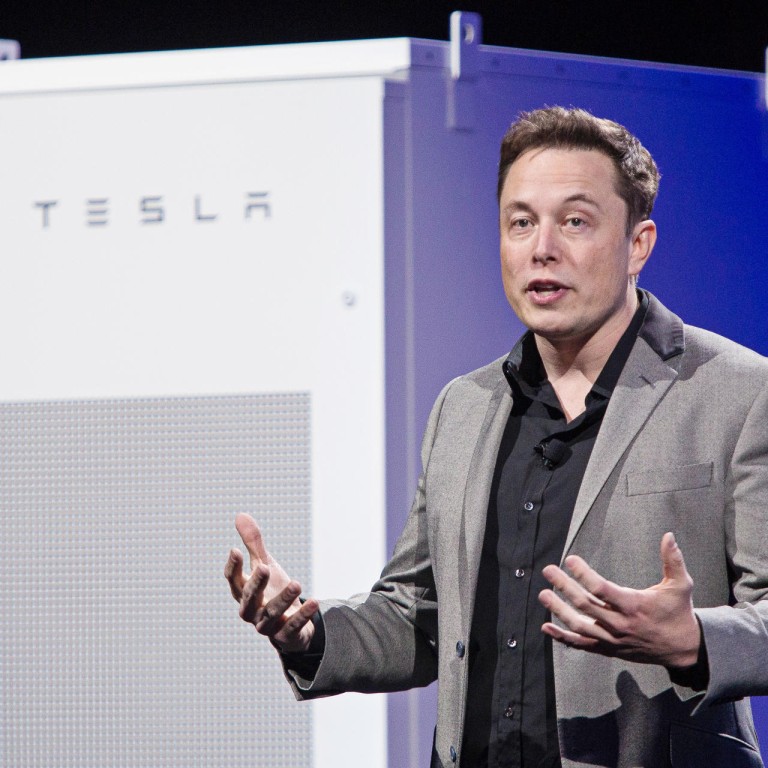
World powered by batteries? Elon Musk unveils plan to leave power plants redundant
Tesla billionaire hails new home-storage power unit as 'missing piece' in sustainable energy
Will the world become battery-powered? That's certainly the ambition of Elon Musk, the PayPal billionaire turned would-be space explorer and electric car baron.
Last week Musk unveiled what he called "the missing piece" in sustainable energy - a range of batteries that can be used in homes and businesses to store power from wind or solar or take advantage of cheap electricity to charge up overnight and then be used in peak hours.
Two billion of these "Powerpacks" could store enough electricity to meet the entire world's needs. "That may seem like an insane number," Musk said. "We're talking about trying to change the fundamental energy infrastructure of the world."
Next year, Musk's Tesla Motors is set to start operating a power-storage-device "gigafactory" across nearly a thousand acres of Nevada real estate. The company is required to contribute US$3.5 billion to the local economy, in return for a US$1.25 billion tax break.
Battery expert Davide Andrea, an engineer at Colorado-based battery manufacturer Elithion, worries about costs, with the most basic home unit priced at US$3,500. No details have yet emerged about the cost of the large units Tesla is reportedly supplying to companies including Apple and Google to help manage their power supplies.
"Electricity is way too cheap to store in an expensive battery," Andrea said. "It's like saying I'm going to be storing my potatoes in a safe. Potatoes are too cheap to store in a safe."
But Andrea is convinced batteries are part of a more energy-efficient future. He is currently involved in a new project in Boulder to install batteries in homes, to ease the strain on power plants and avoid costly rewiring as the sizes of neighbourhoods change.
Felix Kramer, a clean-energy entrepreneur in California, said he hopes Musk's presentation changes minds.
"Tesla demolished the idea that EVs (electric vehicles) were golf carts," Kramer said. "And maybe ... they're about to demolish the idea that we can't switch from coal and gas to wind and solar because of reliability issues. If they convince consumers - that changes the conversation."
Andrea and Kramer are enthusiastic about the possibility of greater infrastructure improvements with increased adoption of electric cars.
Power provision could become much more efficient if cities can be persuaded to draw power from those car batteries, as well as supplying it.
That would provide electricity and diminish local reliance on expensive, fossil fuel-powered generators during times of peak demand, when everyone turns on their air conditioners or heaters, for example.
"In a home, the cost of the storage becomes much more important," Andrea said. "It solves so many problems - the power company no longer has to turn on a dirty power plant during high-demand times. You can use the present wire infrastructure."
If Musk's batteries can merge wind, solar and electric car power into existing grids, that would constitute tremendous economic savings for cash-strapped municipalities everywhere.
"This is within the power of humanity to do," Musk told the large crowd gathered at Tesla's design centre in a Los Angeles suburb.
"We have done things like this before. It is not impossible."
